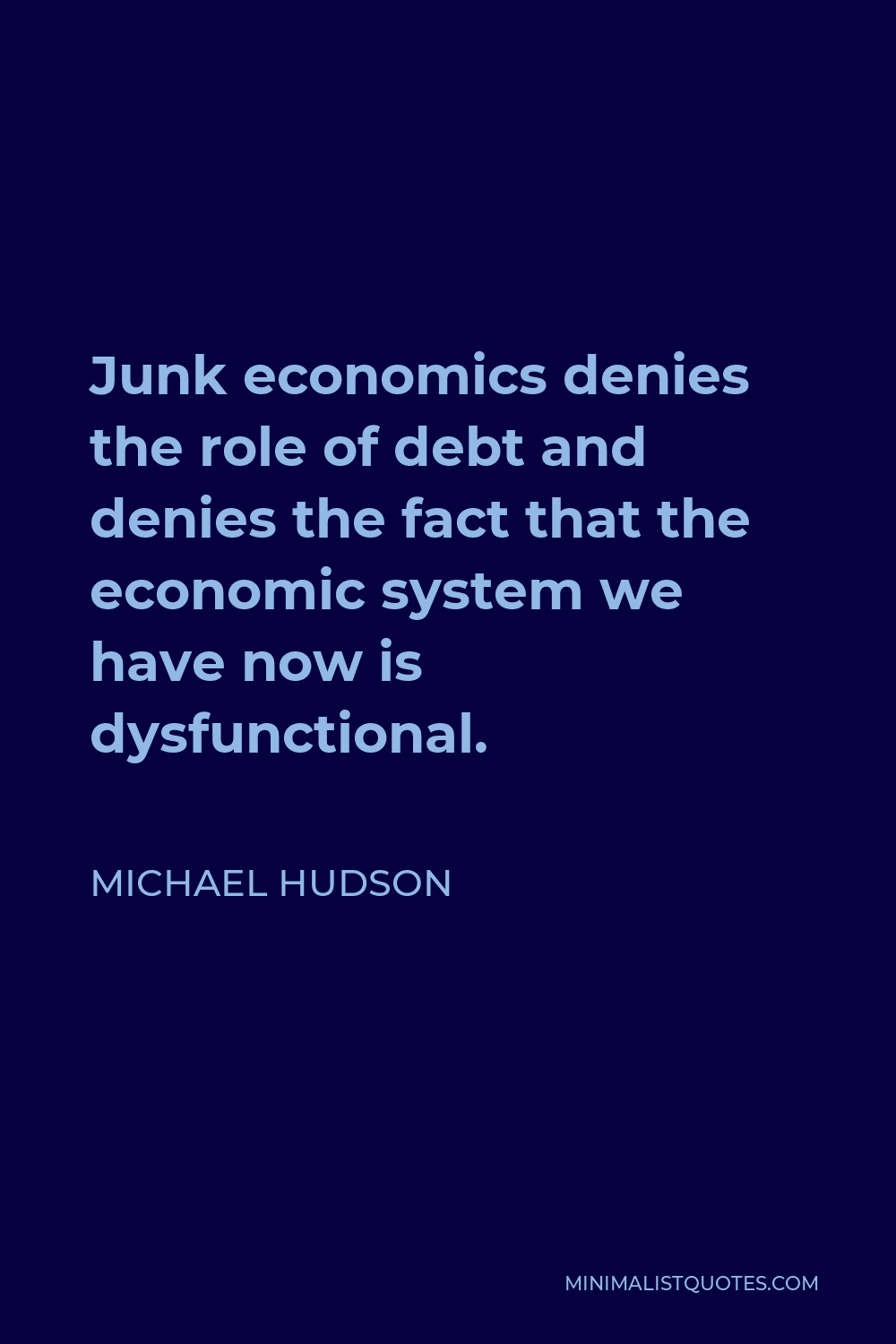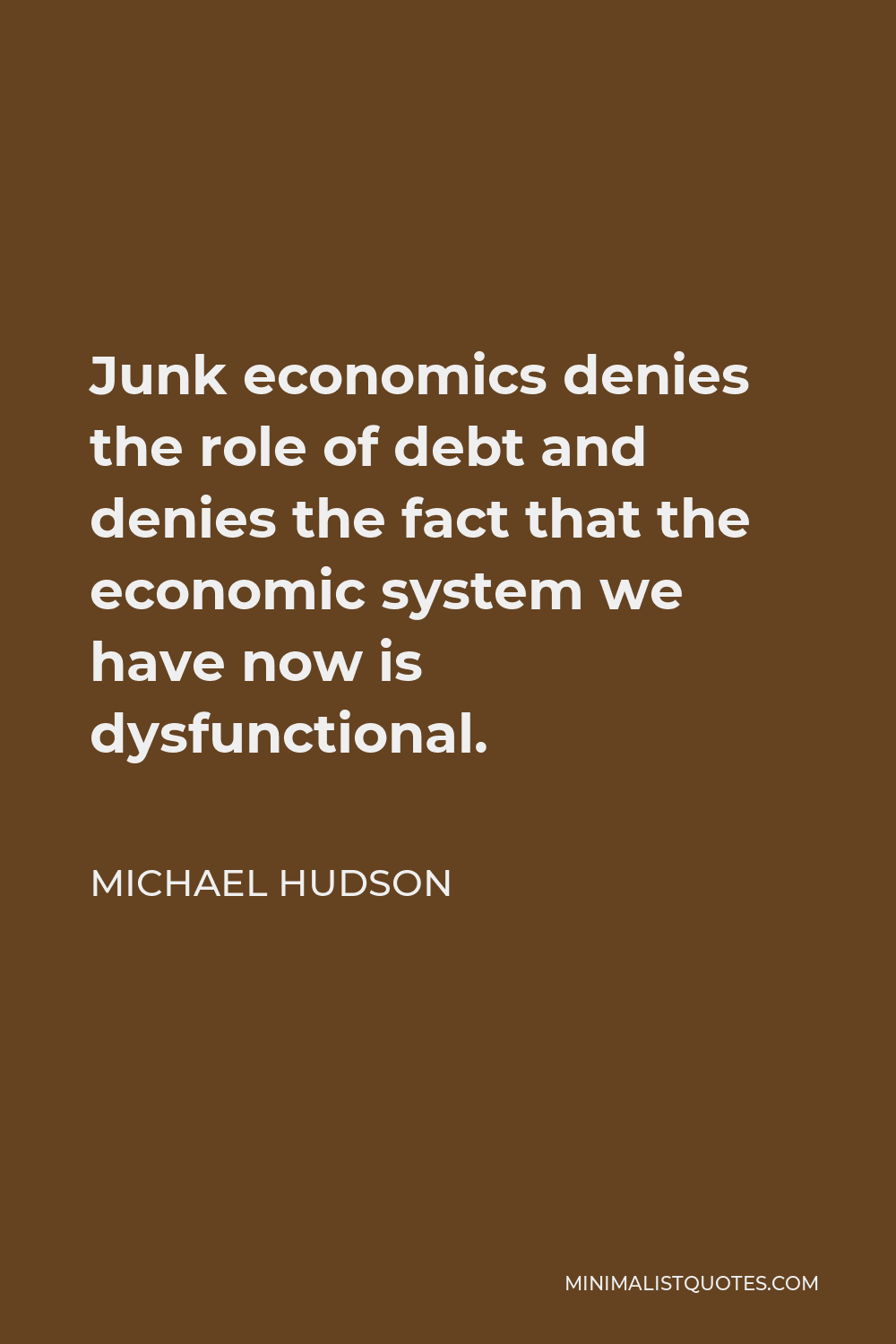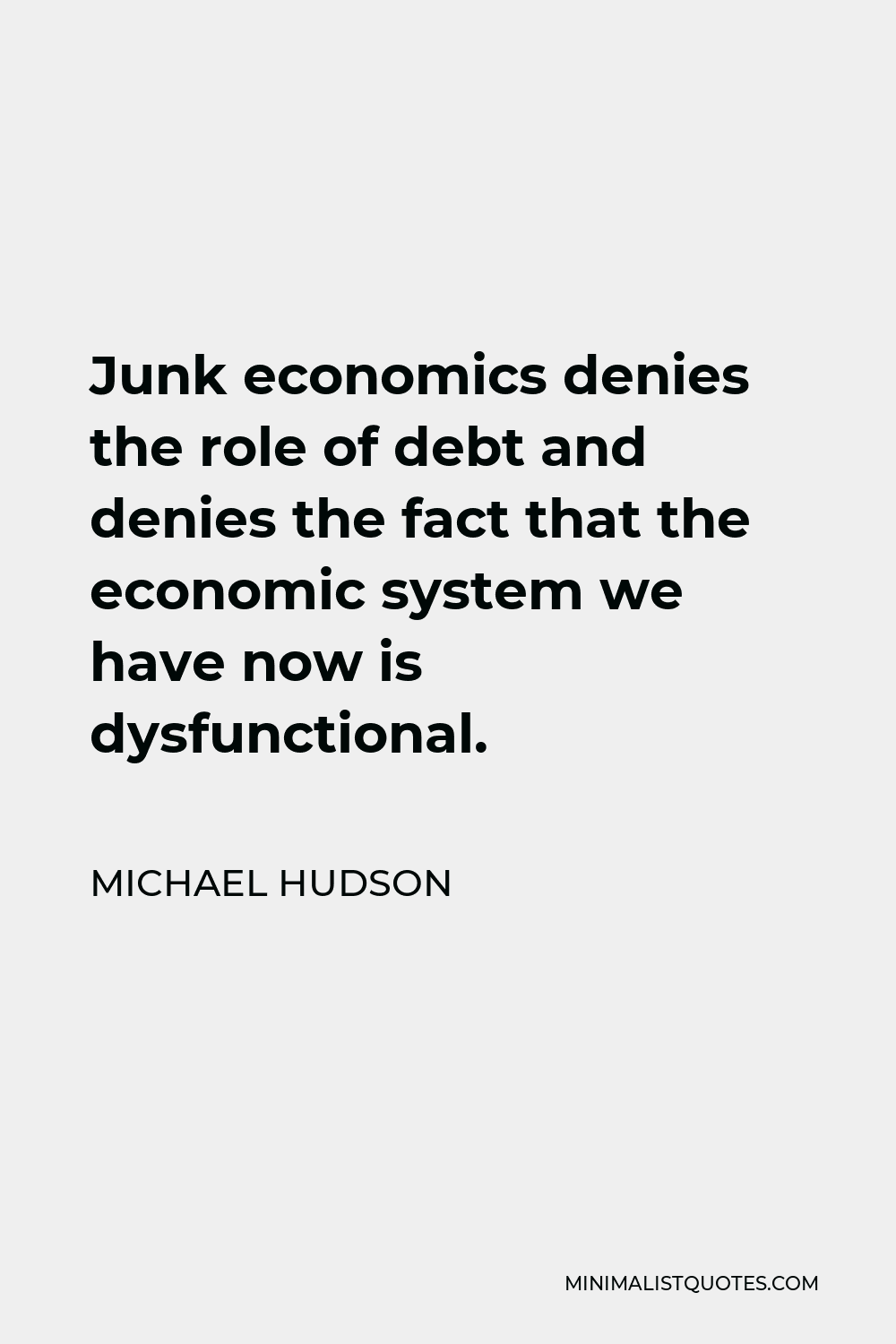Normally, if someone goes bankrupt, you wipe out the debt and get a fresh start. But that’s not permitted with student loans. So the effect is to impoverish many graduates with very high debts.
MICHAEL HUDSONJunk economics denies the role of debt and denies the fact that the economic system we have now is dysfunctional.
More Michael Hudson Quotes
-






-





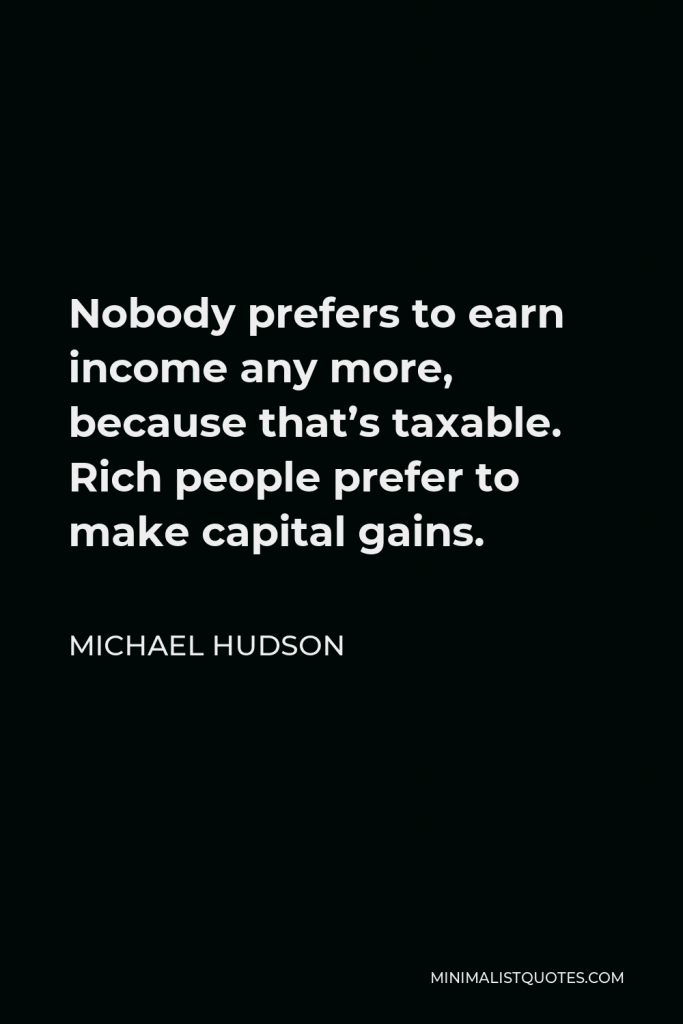

Nobody prefers to earn income any more, because that’s taxable. Rich people prefer to make capital gains.
MICHAEL HUDSON -





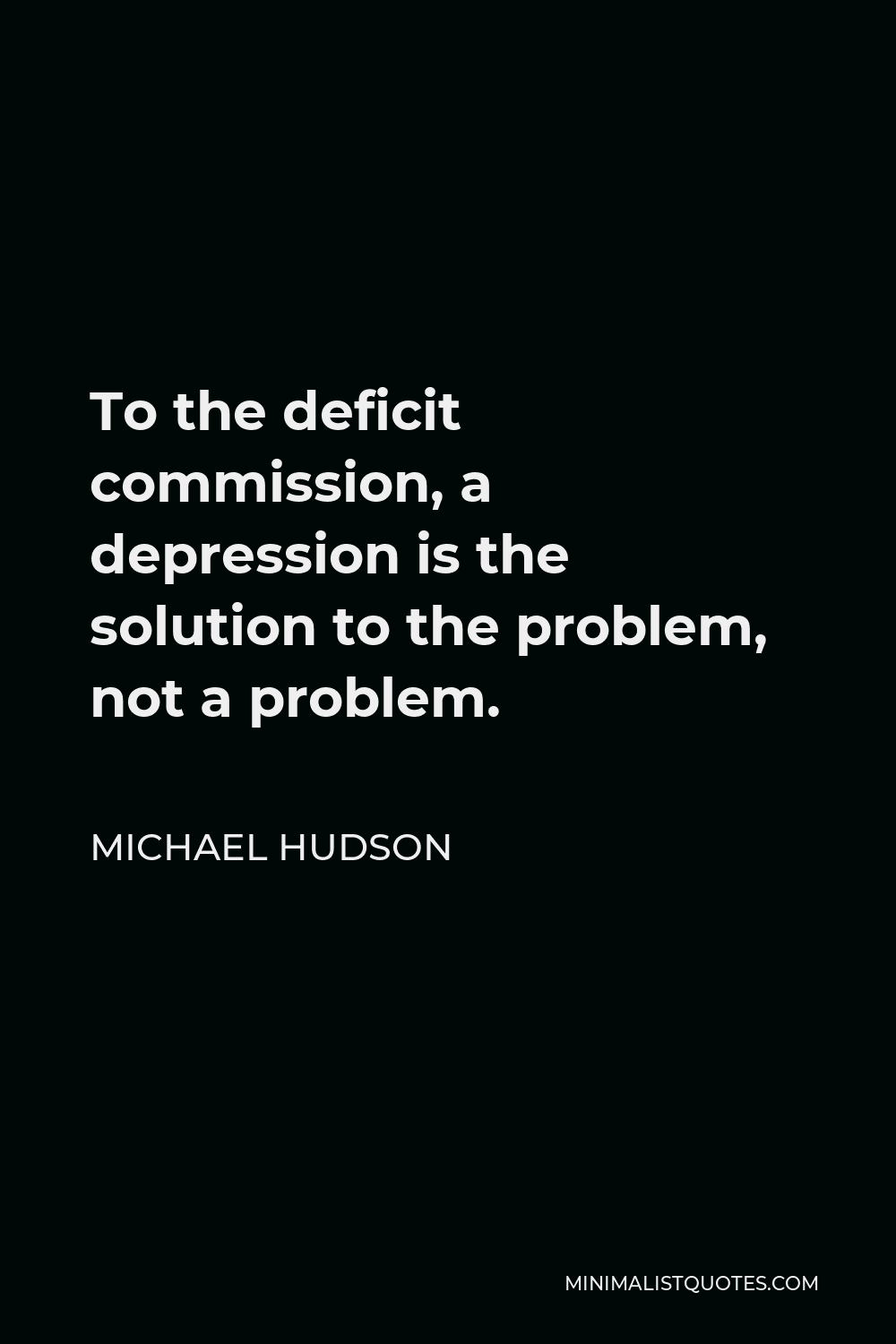
To the deficit commission, a depression is the solution to the problem, not a problem.
MICHAEL HUDSON -





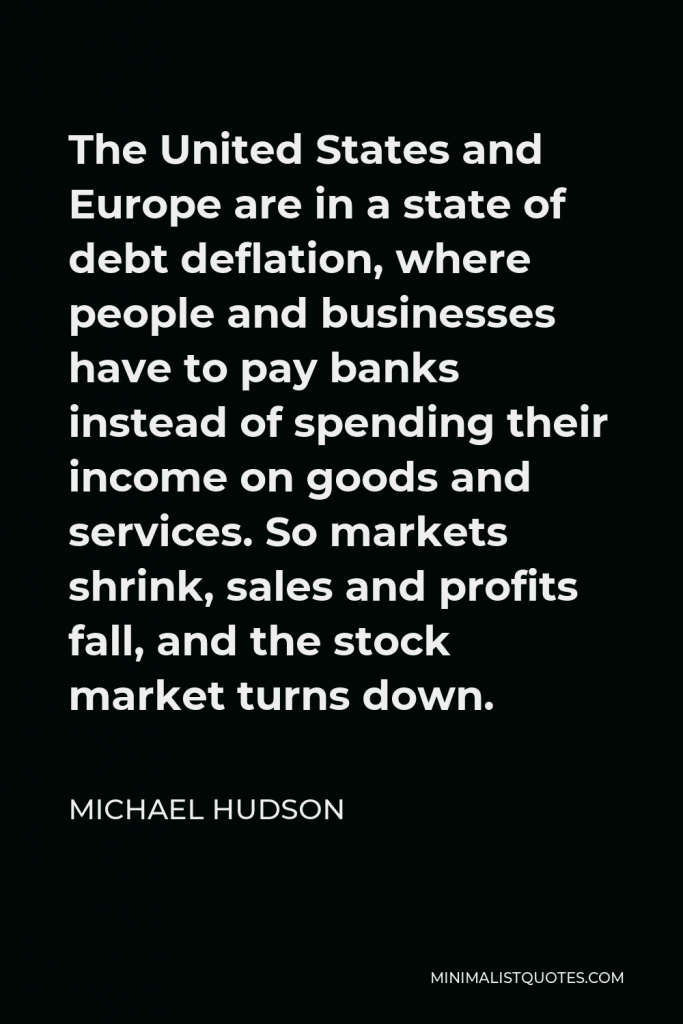

The United States and Europe are in a state of debt deflation, where people and businesses have to pay banks instead of spending their income on goods and services. So markets shrink, sales and profits fall, and the stock market turns down.
MICHAEL HUDSON -





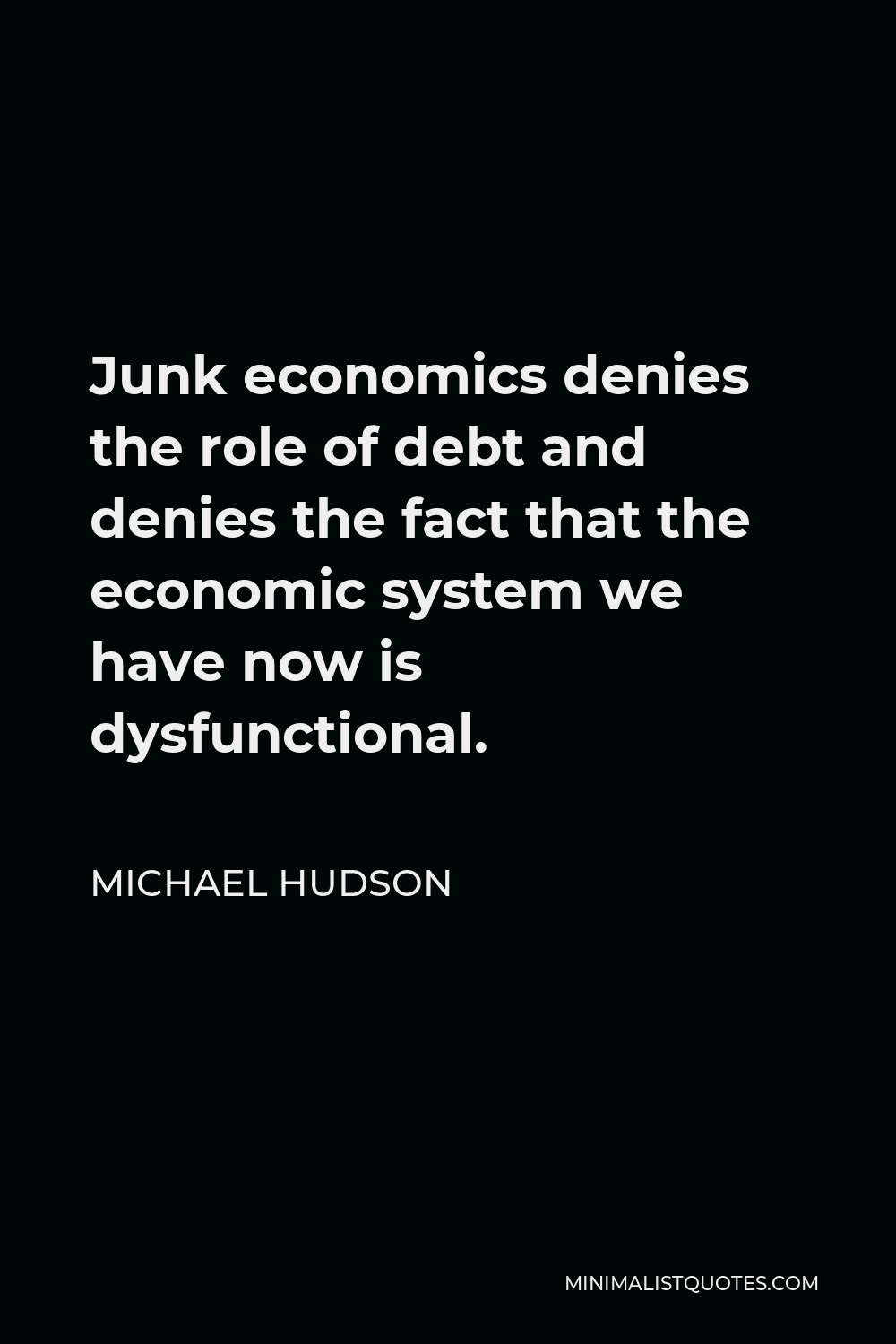
Junk economics denies the role of debt and denies the fact that the economic system we have now is dysfunctional.
MICHAEL HUDSON -





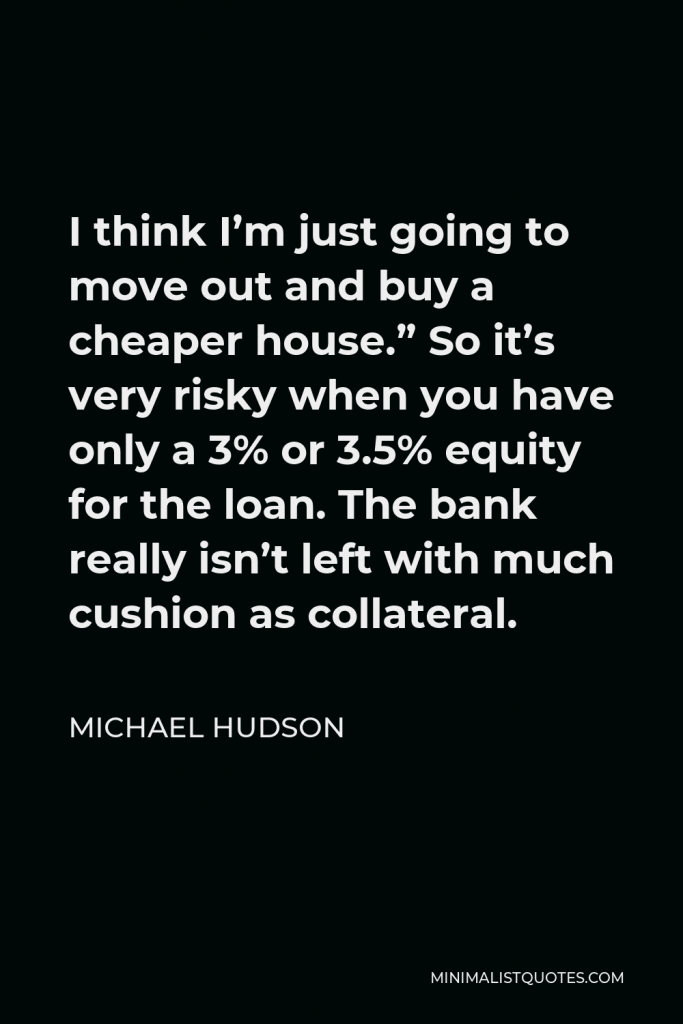

I think I’m just going to move out and buy a cheaper house.” So it’s very risky when you have only a 3% or 3.5% equity for the loan. The bank really isn’t left with much cushion as collateral.
MICHAEL HUDSON -





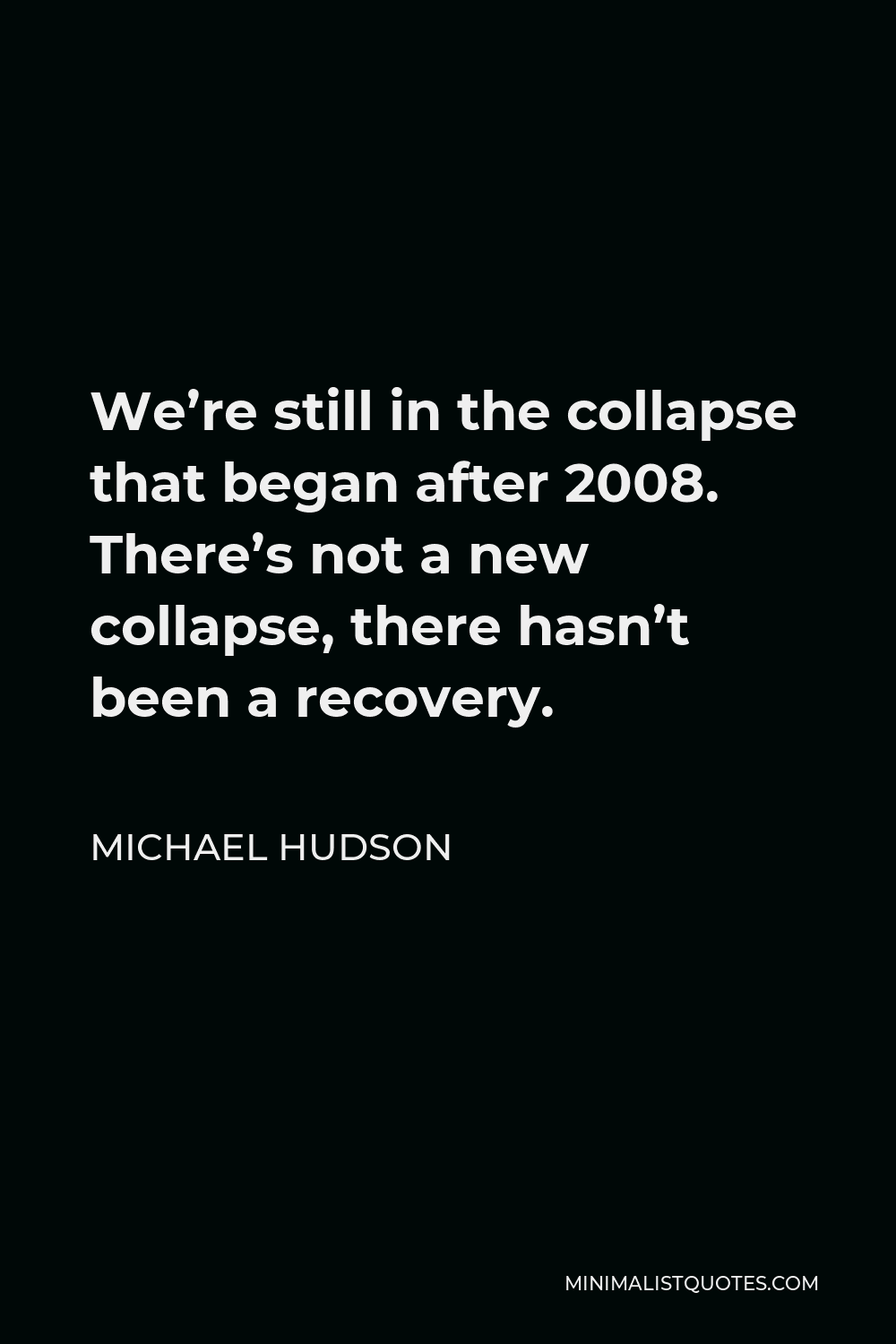
We’re still in the collapse that began after 2008. There’s not a new collapse, there hasn’t been a recovery.
MICHAEL HUDSON -





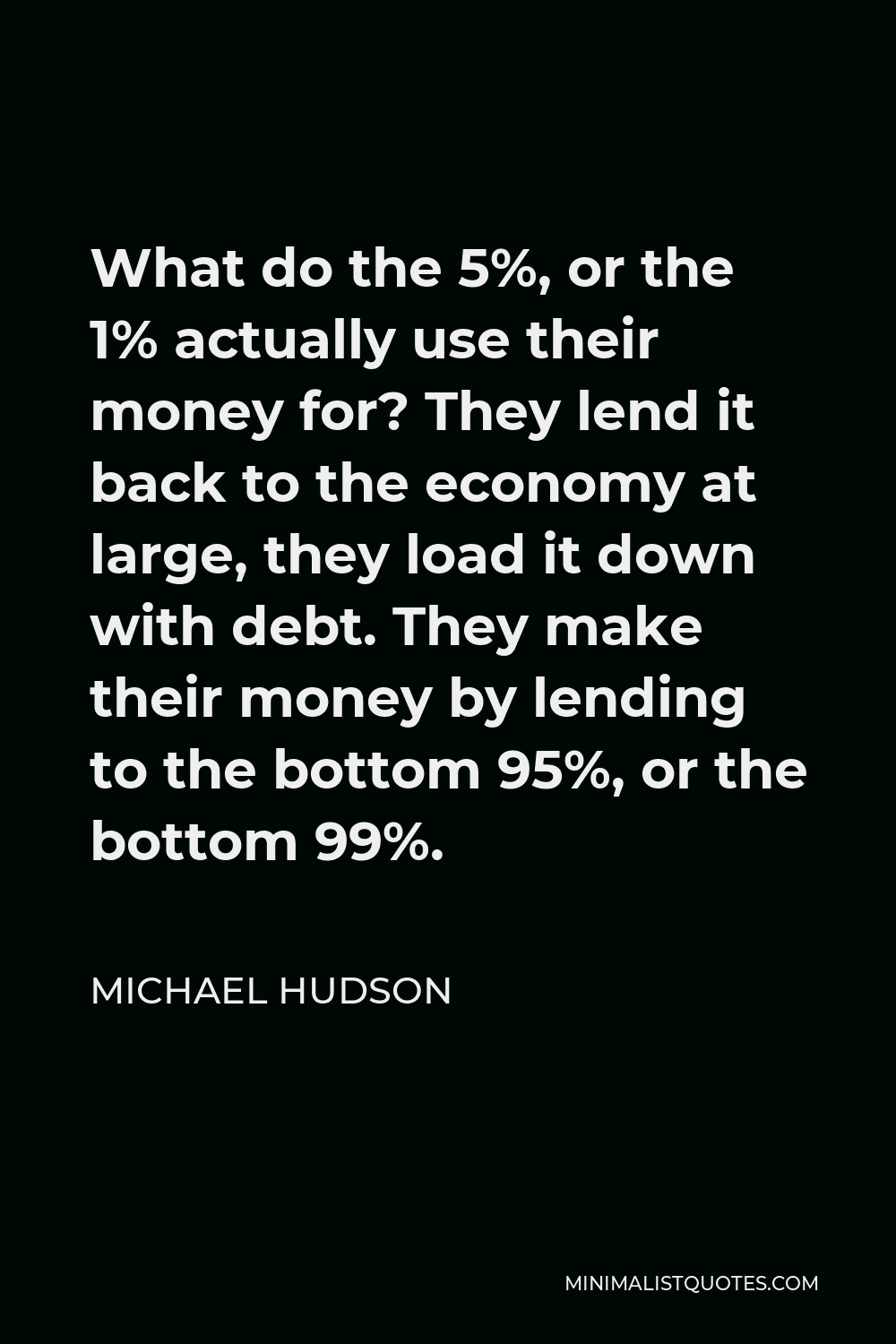
What do the 5%, or the 1% actually use their money for? They lend it back to the economy at large, they load it down with debt. They make their money by lending to the bottom 95%, or the bottom 99%.
MICHAEL HUDSON -





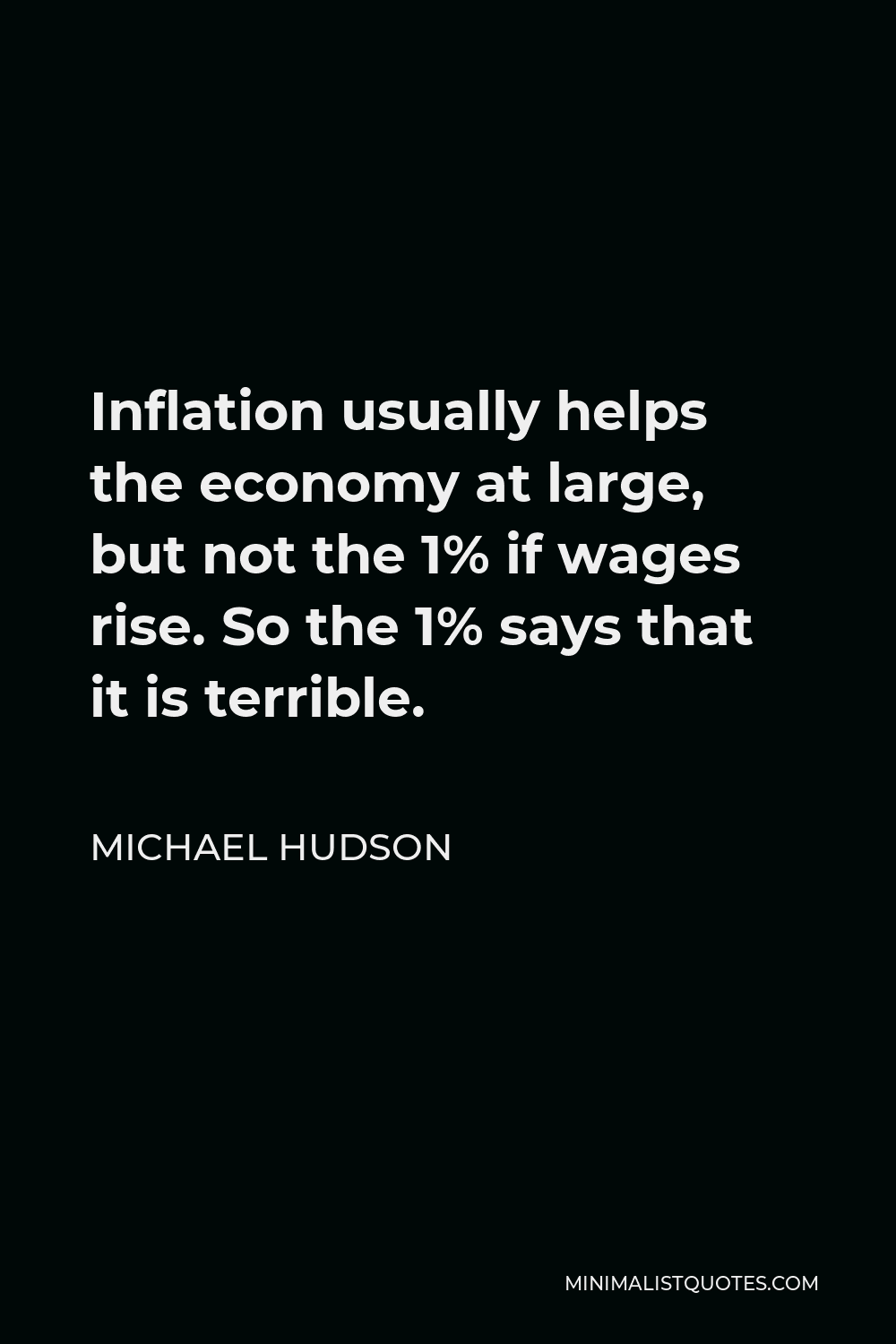
Inflation usually helps the economy at large, but not the 1% if wages rise. So the 1% says that it is terrible.
MICHAEL HUDSON -





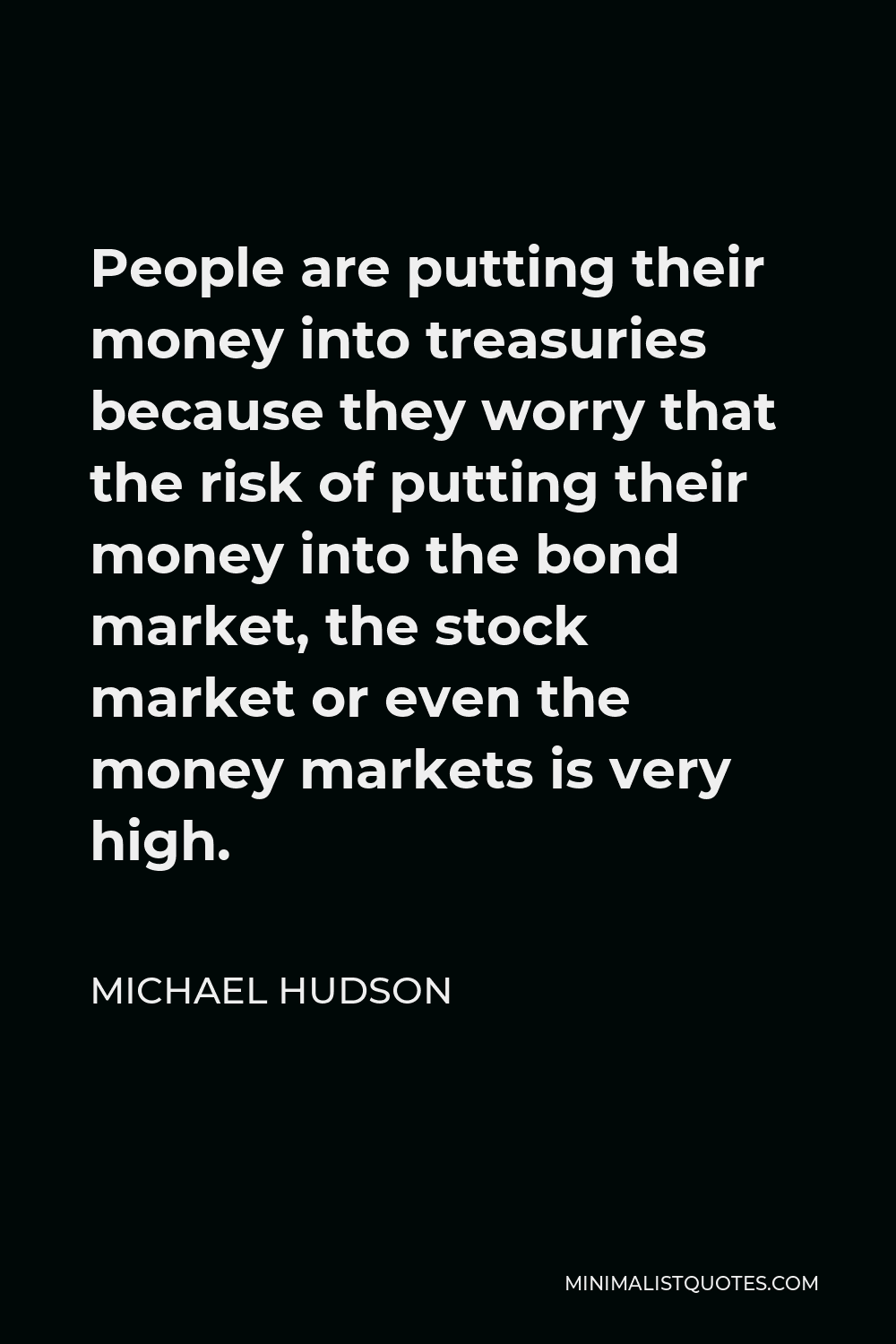
People are putting their money into treasuries because they worry that the risk of putting their money into the bond market, the stock market or even the money markets is very high.
MICHAEL HUDSON -





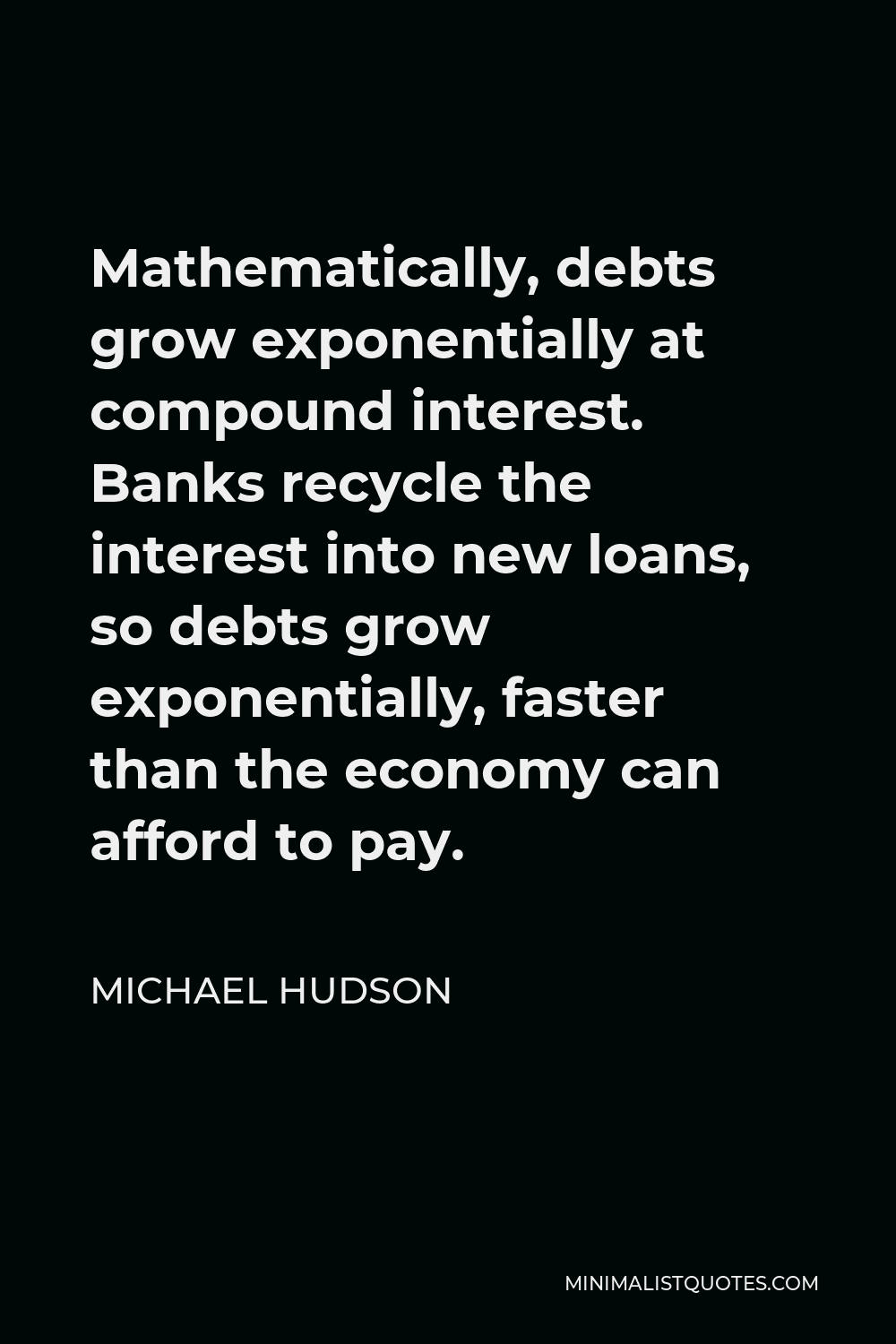
Mathematically, debts grow exponentially at compound interest. Banks recycle the interest into new loans, so debts grow exponentially, faster than the economy can afford to pay.
MICHAEL HUDSON -





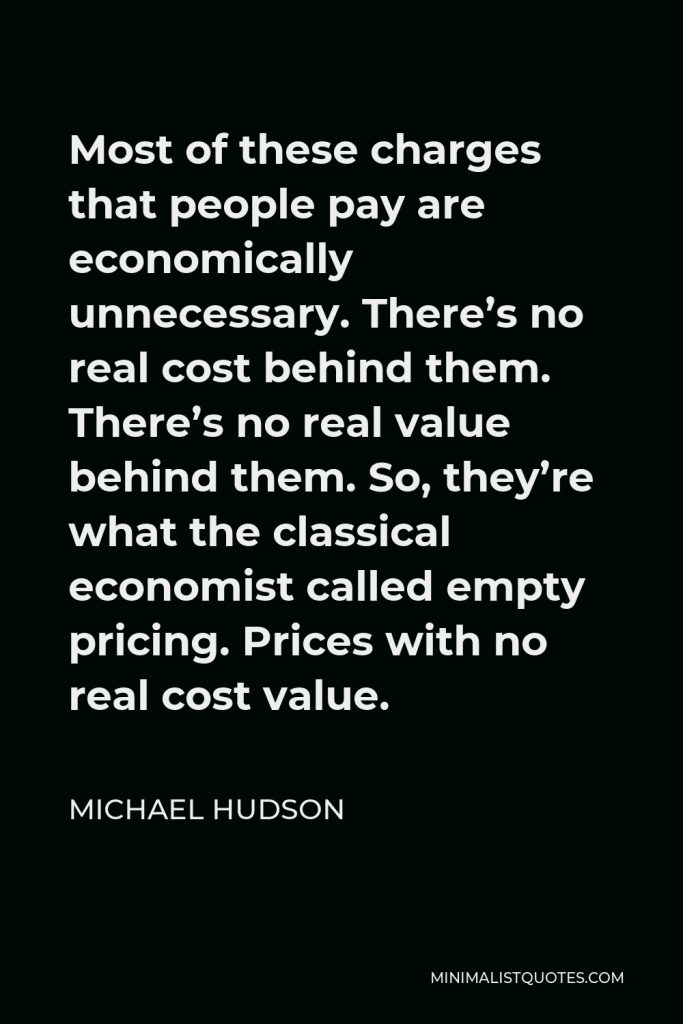

Most of these charges that people pay are economically unnecessary. There’s no real cost behind them. There’s no real value behind them. So, they’re what the classical economist called empty pricing. Prices with no real cost value.
MICHAEL HUDSON -





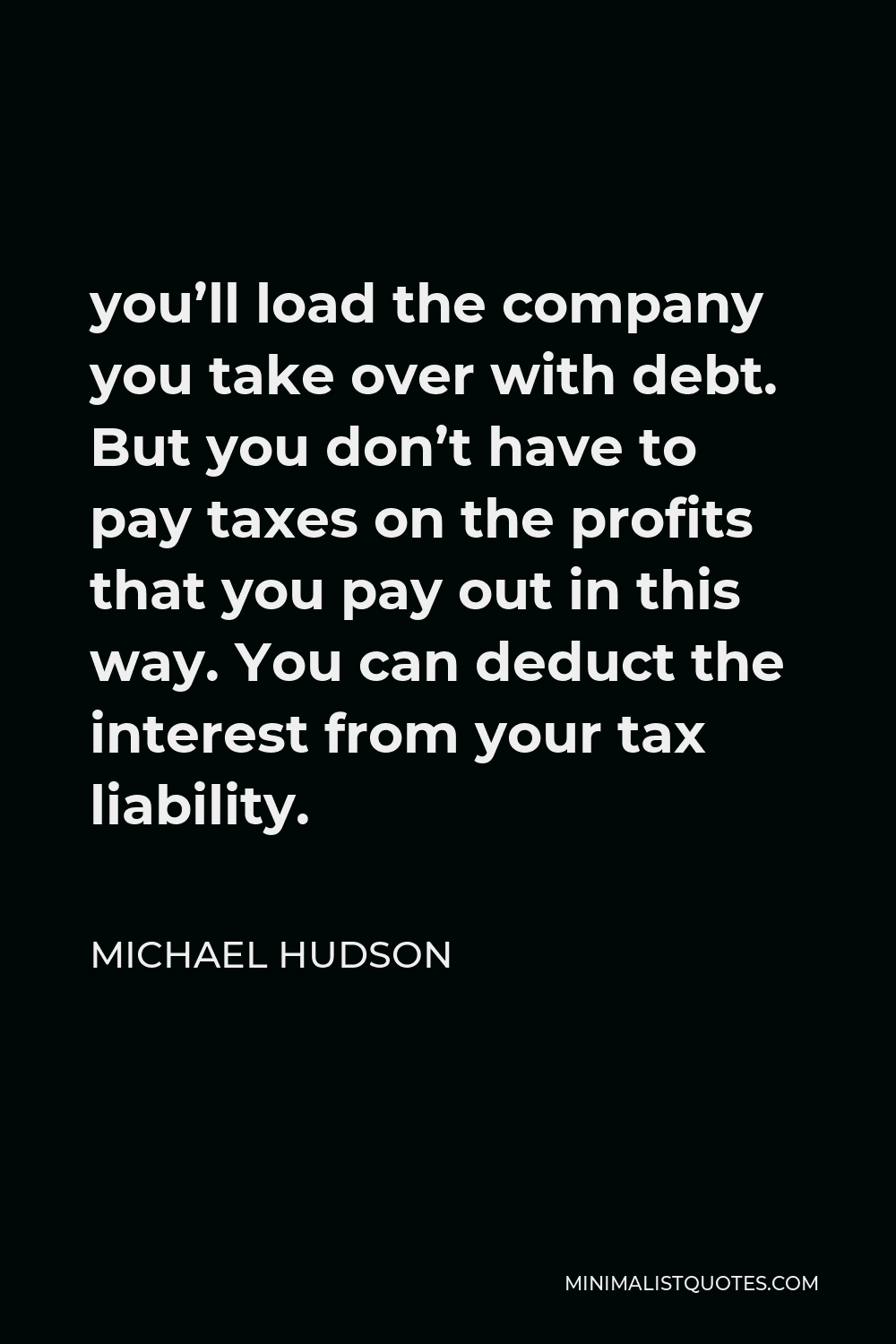
you’ll load the company you take over with debt. But you don’t have to pay taxes on the profits that you pay out in this way. You can deduct the interest from your tax liability.
MICHAEL HUDSON -





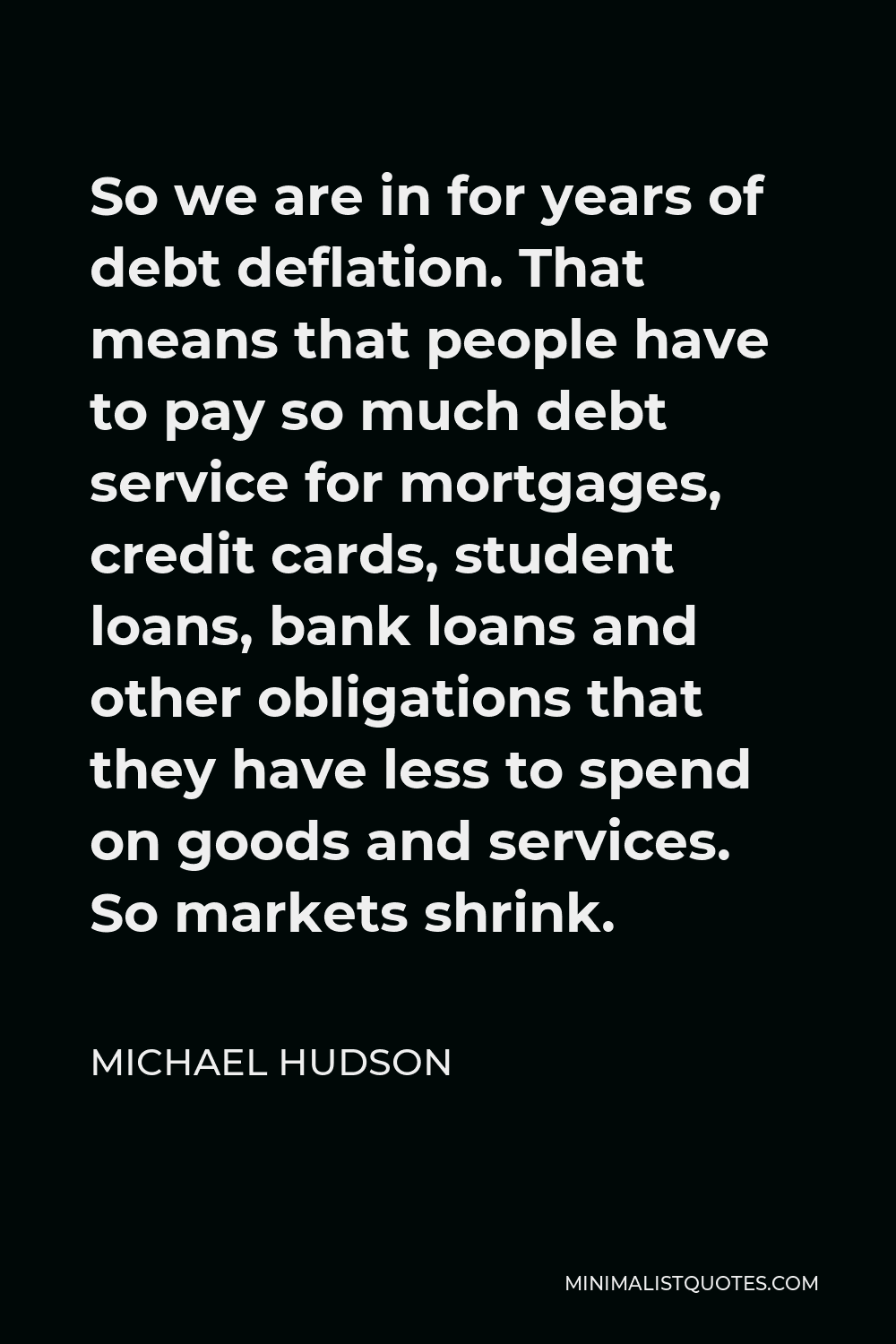
So we are in for years of debt deflation. That means that people have to pay so much debt service for mortgages, credit cards, student loans, bank loans and other obligations that they have less to spend on goods and services. So markets shrink.
MICHAEL HUDSON -





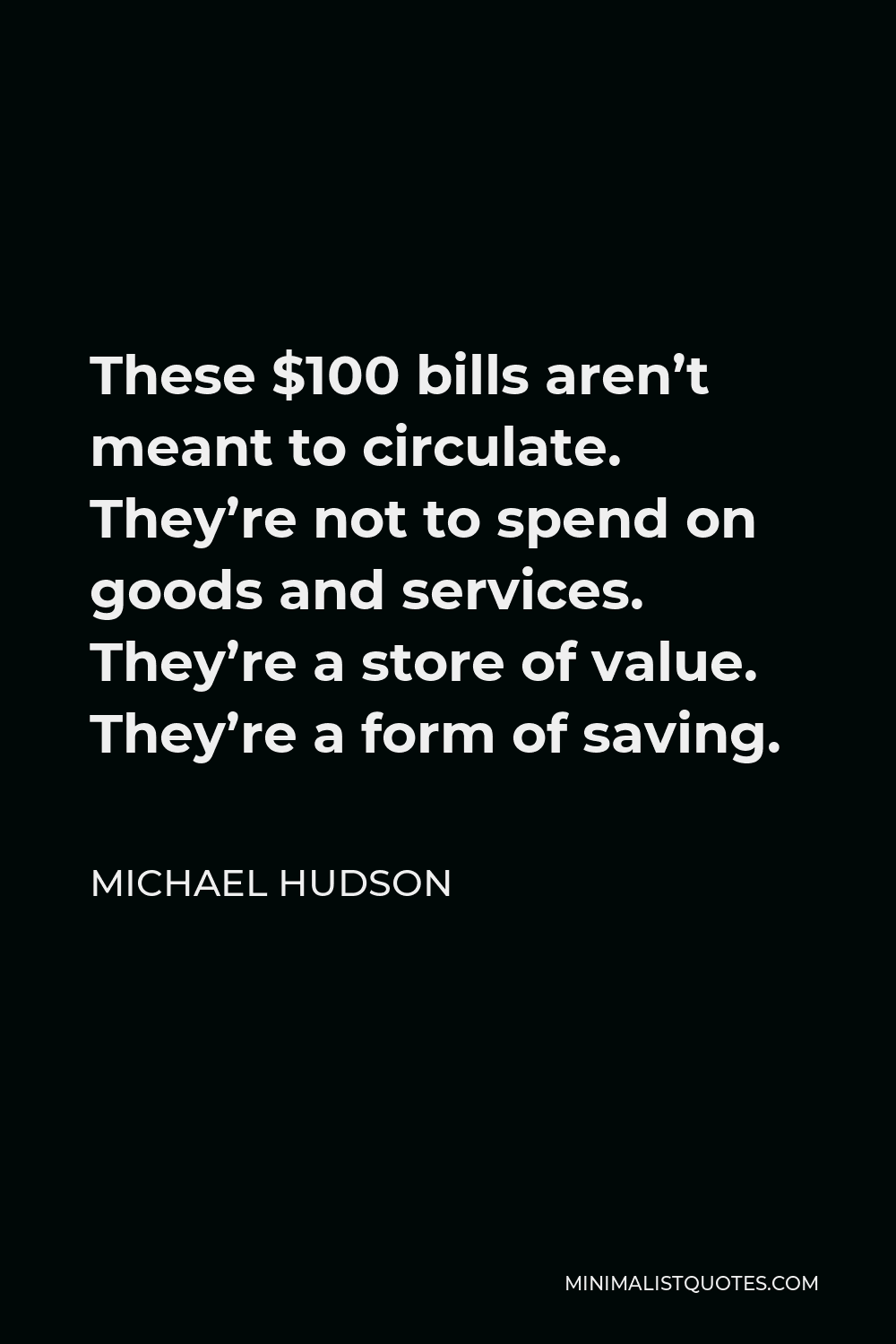
These $100 bills aren’t meant to circulate. They’re not to spend on goods and services. They’re a store of value. They’re a form of saving.
MICHAEL HUDSON -






Much higher cost for all the infrastructure that he’s proposing. You could call Trump’s plan “public investment to create private profit”. That’s really his plan in a summary.
MICHAEL HUDSON

